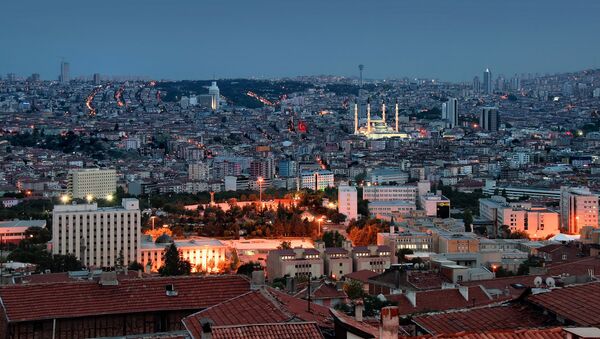"In general, it is difficult to call Turkey an example of a democratic state, at least if we speak about the mass media. Many of our colleagues are on trial, many are in jail, we regularly see how media [outlets] are being closed, and, I would say that one of the fundamental human rights — the right to free access to information — is being violated," Obradovic said in commenting on the environment for the press in Turkey.
Earlier in the day, Sputnik Turkey Bureau Chief Tural Kerimov said that he had been banned from entering the country by the Turkish authorities upon arrival at Istanbul Ataturk Airport. This comes a week after the Turkish authorities shut down the agency’s Turkish-language website citing "administrative measures." The move is the most recent episode in the government’s crackdown on media and free speech in the country following the imprisonment of 14 local journalists.
The Kerimov case is a continuation of Ankara's crackdown on media and free speech in the country, Obradovic noted.
In January 2015 Turkey passed legislation allowing the prime minister and other ministers to block any type of online outlet, without a court order. The ministers can get the Turkish Telecommunications Department and providers to block sites or delete content within four hours after receiving a notice of "national security, protection of social order, or for the prevention of crime."
Turkey's crackdown on journalists and restrictions on freedom of speech were previously criticized by the international community, including the United Nations, the United States, the European Union, Russia and the organization Reporters Without Borders (RSF). Turkey ranks 151th out of 180 countries in the RSF 2016 press freedom index.



